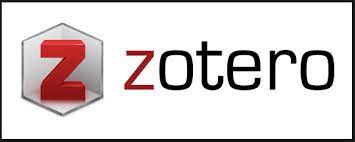SLANG LANGUAGE IN SOLIDIFYING IDENTITY AND SOLIDARITY: A SOCIOLINGUISTIC ANALYSIS OF THE EPISODE 'DUELING HATS' FROM THE COMEDY SKETCH 'KEY & PEELE'
Keywords:
African-American Slang, Comedy Sketch, Cultural Identity, Sociolect, SociolinguisticsAbstract
This study examines the use of African-American slang in the episode "Dueling Hats" from the comedy sketch Key & Peele, which aired on July 16, 2009. The research aims to understand the function and meaning of slang usage in social communication, particularly as a marker of identity and solidarity within the African-American community. The method used is a qualitative descriptive analysis with Miles and Huberman's (1992) data analysis techniques, involving data reduction, data presentation, and drawing conclusions/verification. The analysis results show that slang in dialogue not only functions as everyday communication tools but also as strong cultural identity symbols. The use of words like "yo," "cuz," and "dog" reflects closeness and solidarity, reducing social and emotional distance between individuals. Slang also enables more efficient and rapid communication. The use of slang in this context creates a special communication code that reinforces a sense of membership and togetherness within the African- American community. This study contributes to understanding the complexity and richness of African-American culture through slang, as well as highlighting the importance of language in forming and maintaining social relationships. The findings are expected to enhance insights in sociolinguistics and media analysis studies.
Downloads
References
Wolfram, Walt. (2004). American English: Dialects and Variation. New Jersey: Wiley- Blackwell Publishing.
Trudgill, Peter. (2003) A Glossary of Sociolinguistics. Edinburgh: Edinburgh University Press.
Durrell, Martin (2004). "Sociolect". In Ammon, Ulrich; et al. (eds.). Sociolinguistics. An International Handbook of the Science of Language and Society. Berlin: Walter de Gruyter.
Harlin. (2018). Variasi Bahasa Bagian Kedua. Kantor Bahasa Maluku. Accessed from: https://kantorbahasamaluku.kemdikbud.go.id/2018/07/variasi-bahasa-bagian- kedua/ (accessed on May 21, 2024)
Dictionary of Cambridge. (n.d.). Slang. Retrieved from https://dictionary.cambridge.org/dictionary/english/slang (accessed on June 21, 2024)
Keraf, G. (2010). Diksi dan Gaya Bahasa. Jakarta: PT Gramedia Pustaka Utama. Widawski, M. (2015). African American slang: A linguistic description. Cambridge:
Cambridge University Press.
Sobri, Safi’i, I., Astuti, M. D. (2024). Analysis of Slang in The Novel Marmut Merah Jambu
by Raditya
Dika as Indonesian Language Teaching Materials in Senior High School. Pandeglang: Cakrawala Pedagogik.
Setiawan, Heru. (2019). Bahasa Slang di Angkringan Kabupaten Ponorogo. Pekanbaru: Madah, Jurnal Bahasa dan Sastra.
Milles, M. B., Huberman, A. M. (1992). Analisis Data Kualitatif: Buku Sumber Tentang Metode-Metode Baru, (Penerjemah: Tjetjep Rohendi). Jakarta: Universitas Indonesia Press.
Rickford, John. (2015). African American Language in California: Over Four Decades of Vibrant Variationist Research, in Lanehart, Sonja (ed.), The Oxford Handbook of African American Language. Oxford: Oxford University Press.








